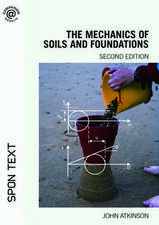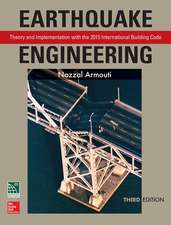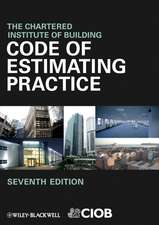Building Construction and Design
Autor J.E. Ambroseen Limba Engleză Paperback – 17 mai 2012
Preț: 658.88 lei
Preț vechi: 775.14 lei
-15% Nou
Puncte Express: 988
Preț estimativ în valută:
126.12€ • 137.04$ • 106.01£
126.12€ • 137.04$ • 106.01£
Carte tipărită la comandă
Livrare economică 21 aprilie-05 mai
Preluare comenzi: 021 569.72.76
Specificații
ISBN-13: 9781461565857
ISBN-10: 1461565855
Pagini: 416
Ilustrații: XI, 403 p.
Dimensiuni: 210 x 279 x 22 mm
Greutate: 0.93 kg
Ediția:1992
Editura: Springer Us
Colecția Springer
Locul publicării:New York, NY, United States
ISBN-10: 1461565855
Pagini: 416
Ilustrații: XI, 403 p.
Dimensiuni: 210 x 279 x 22 mm
Greutate: 0.93 kg
Ediția:1992
Editura: Springer Us
Colecția Springer
Locul publicării:New York, NY, United States
Public țintă
ResearchDescriere
This book addresses, for the student of architecture, a subject that is of interest to a wide range of people with various relationships to the designing and constructing of buildings. There is at any given time a great mass of information on these topics which may be accessed for application to the many tasks of designers, builders, suppliers, and others. The enormity of this information resource is at once reassuring to those who regularly encounter needs for it, and overwhelming to just about everyone who needs to figure out how to use it. It is especially important for the young designer to be aware of and familiar with the entire framework and of the place of design within it. This book relates the topic of building construction to the basic problems of building design. The basic assumption here is that the need to design precedes the need to build, and that real concern for how to build comes from a desire to build something. This is the normal process of development for designers and others who start from the point of desiring a building and then proceed to determine what it should be. Intense concern for specific consideration of building materials, systems, and details of construction thus emerges at a later stage of design, typically after the general form, size, and essential nature of the building are already proposed.
Cuprins
Preface. Introduction. Building design issues and criteria. Sources of design information. Building codes and industry standards. Architectural components. Materials. Construction elements. Enhancement of construction. Construction systems. Case studies. Glossary. Appendix. Study aids. Index.








